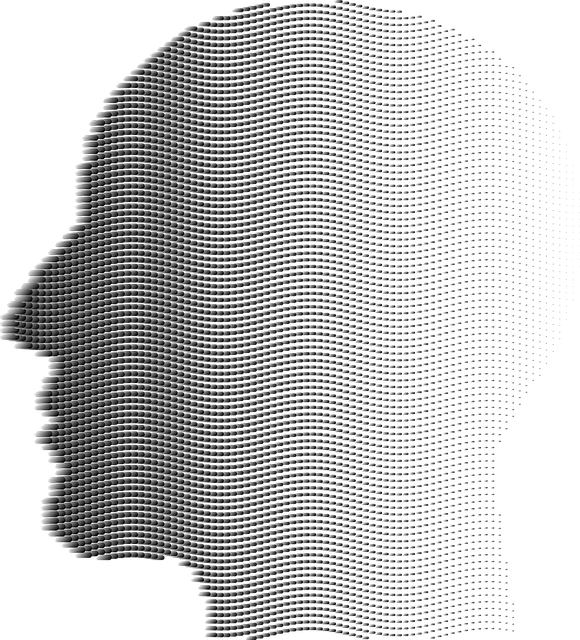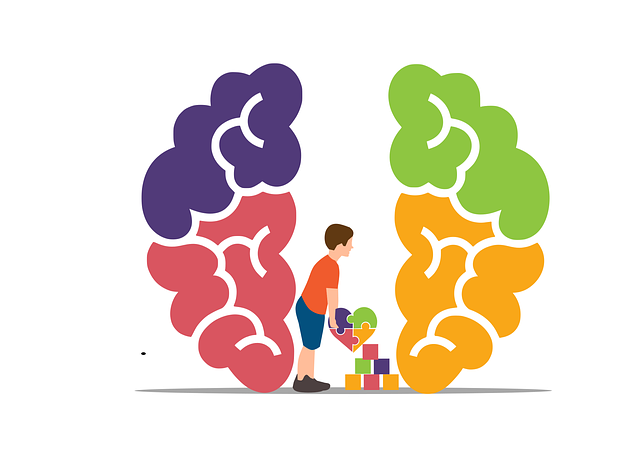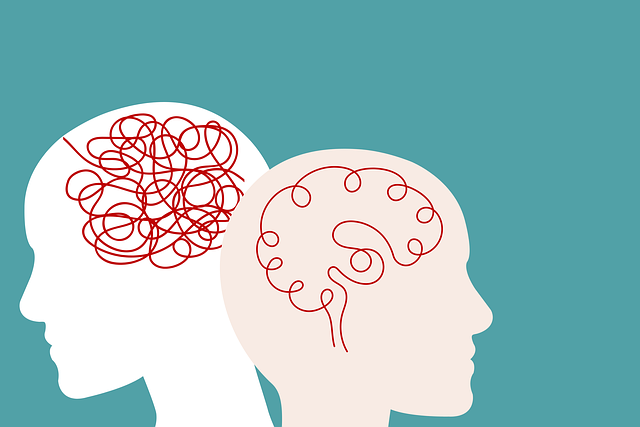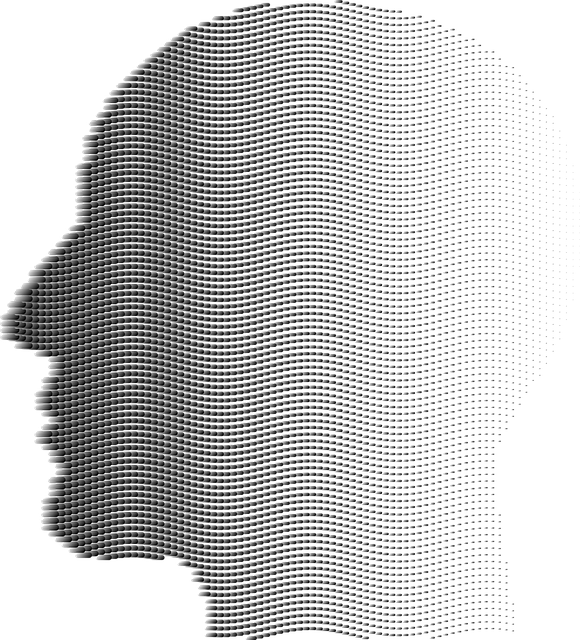Wheat Ridge Interpersonal Issues Therapy (WRIIT) offers a powerful framework for effective mental wellness coaching, focusing on resolving interpersonal issues that impact well-being. By using WRIIT techniques, coaches guide clients through challenging relationships, improve communication, and build resilience. Tailored interventions in workshops promote stress management, self-esteem enhancement, and emotional resilience. Recognizing diverse mental health challenges across demographics ensures inclusive program design. Integrating evidence-based practices like CBT and mindfulness fosters sustainable mental wellness. Continuous monitoring, adaptive strategies, and staying current with research ensure program relevance and optimal participant benefits.
Mental wellness coaching programs have emerged as powerful tools for personal growth. This article delves into the development of such programs, drawing from the foundational principles of Wheat Ridge Interpersonal Issues Therapy. We explore key aspects, including identifying target groups with distinct mental health needs and designing effective coaching modules. Additionally, we discuss incorporating evidence-based techniques, successful implementation strategies, and continuous improvement methods. By understanding and leveraging these elements, wellness coaches can facilitate meaningful transformation.
- Understanding Wheat Ridge Interpersonal Issues Therapy: A Foundation for Coaching Programs
- Identifying Target Groups and Their Unique Mental Health Needs
- Designing Effective Coaching Modules and Strategies
- Incorporating Evidence-Based Techniques in Wellness Coaching
- Implementation, Monitoring, and Continuous Improvement of the Program
Understanding Wheat Ridge Interpersonal Issues Therapy: A Foundation for Coaching Programs

Wheat Ridge Interpersonal Issues Therapy (WRIIT) serves as a robust foundation for developing effective mental wellness coaching programs. This therapeutic approach focuses on identifying and addressing interpersonal issues that significantly impact an individual’s overall well-being. By delving into WRIIT, coaches gain valuable tools to help clients navigate complex relationships, enhance communication skills, and cultivate healthier interactions.
Incorporating techniques from WRIIT allows for tailored interventions aimed at stress management workshops within organizations, fostering self-esteem improvement, and resilience building. Through this method, coaching programs can provide individuals with the necessary coping strategies to manage interpersonal stressors, boost confidence in social settings, and develop a stronger sense of emotional resilience.
Identifying Target Groups and Their Unique Mental Health Needs

Identifying target groups is a crucial step in developing effective mental wellness coaching programs. Different demographics and populations face distinct mental health challenges. For instance, young adults navigating early career pressures and Wheat Ridge Interpersonal Issues Therapy can significantly benefit from tailored support. Similarly, healthcare providers at risk of burnout may require specialized prevention strategies, addressing their unique workplace stressors. By recognizing these variations, coaches can create inclusive and impactful programs.
Mental wellness coaching should aim to cater to diverse needs, including depression prevention and stigma reduction efforts. Understanding cultural, social, and economic factors influencing mental illness is essential. This approach ensures that interventions are not only accessible but also culturally sensitive, fostering better engagement and outcomes for all participants, whether they be students, professionals, or those facing specific interpersonal challenges like those offered by Wheat Ridge Interpersonal Issues Therapy.
Designing Effective Coaching Modules and Strategies

Designing effective coaching modules is an art that requires a deep understanding of human psychology and behavior. At Wheat Ridge Interpersonal Issues Therapy, we’ve found success in integrating evidence-based practices tailored to individual needs. A well-rounded mental wellness coaching program should address various aspects of emotional regulation, inner strength development, and personal growth. This can be achieved by incorporating diverse strategies such as cognitive-behavioral techniques, mindfulness exercises, and goal-setting activities.
Each module should be meticulously crafted to build upon the previous one, fostering a progressive learning environment. For instance, starting with identifying and challenging negative thought patterns (Mental Health Policy Analysis and Advocacy) can lead to subsequent modules focused on stress management and resilience-building. By combining theoretical knowledge with practical applications, coaches can empower individuals to navigate through interpersonal issues and cultivate sustainable mental wellness.
Incorporating Evidence-Based Techniques in Wellness Coaching

Incorporating evidence-based techniques is a cornerstone of effective wellness coaching, particularly when addressing interpersonal issues that often underlie mental health struggles. Programs that integrate therapeutic modalities such as cognitive behavioral therapy (CBT) and mindfulness practices have shown promise in promoting positive changes in client well-being. For instance, Wheat Ridge Interpersonal Issues Therapy leverages CBT to help individuals identify and challenge negative thought patterns while teaching communication strategies for healthier relationships. By combining these evidence-based approaches with techniques like conflict resolution strategies, wellness coaches can empower clients to develop self-care routines that are tailored to their unique needs, fostering better mental health outcomes.
Moreover, effective coaching involves equipping clients with practical tools for managing stress and cultivating resilience. This includes teaching communication skills designed to enhance interpersonal connections, which in turn can mitigate social isolation—a significant risk factor for mental health deterioration. By intertwining self-care routine development for better mental health with robust communication strategies, wellness coaches create a supportive ecosystem that enables individuals to navigate life’s challenges more effectively, ultimately promoting lasting mental wellness.
Implementation, Monitoring, and Continuous Improvement of the Program

The successful implementation of a mental wellness coaching program requires ongoing monitoring and adaptive strategies. Regular evaluation ensures the program aligns with participants’ evolving needs and identifies areas for enhancement. This process involves collecting feedback from both clients and coaches, analyzing program outcomes, and measuring key performance indicators (KPIs). By reviewing these data, stakeholders can pinpoint effective practices and components that contribute to positive mental health outcomes, such as enhanced self-esteem and reduced anxiety, as seen in Wheat Ridge Interpersonal Issues Therapy.
Additionally, continuous improvement necessitates staying abreast of emerging research and best practices in mental wellness coaching and related fields like Healthcare Provider Cultural Competency Training. Integrating evidence-based techniques, including confidence-boosting strategies and stress reduction methods, ensures the program’s relevance and effectiveness over time. This dynamic approach fosters a supportive environment where participants can optimally benefit from the coaching experience.
Wheat Ridge Interpersonal Issues Therapy provides a robust foundation for developing comprehensive mental wellness coaching programs. By understanding its principles and tailoring interventions to specific target groups, coaches can create effective modules that address unique mental health needs. Incorporating evidence-based techniques ensures the program’s integrity and drives positive outcomes. Continuous monitoring and improvement ensure the program remains dynamic and relevant, ultimately revolutionizing mental wellness support for all.














